irreversible
parents, Kerala travel, what we do is best, three years on the road, believe in the best of you, theatre, and pictures from Kerala
Dear Reader,
Thank you for joining me. I hope your week is going good.
I am sending the letter after a few weeks. First, I couldn’t look up from the long post I was writing on the three years of life on the road. Once I pour myself into one thing, I cannot pull away until I have finished. I have shared the article below. Hopefully, it does justice to the three years my partner and I have lived from place to place and home to home, driving with our things in our car Scooby (more on the name in the article).
The last ten days or so I was traveling with my parents in Kerala. They had a good time, mostly.
More than thirteen years ago, I took them on many trips from Bangalore in Karnataka.
“Your mother wants to see the Rameshwaram temple,” my father said as soon as they arrived in my shared Bangalore apartment. They had come from their home in North India.
I had not planned for the 600-km travel. But I took a week’s off from work, booked an all-inclusive tour for the three of us, and we left for the road trip.
The tour bus was to go through several cities, halting at the major temples. We started from Bangalore and traveled to the tip of India, Kanyakumari, through Madurai, Rameshwaram, and so on.
The journey was religious, and we visited grand temples in all these places. But one thing leads to many. Through the bus window, my parents looked into those unknown Southern lands. We passed fields, oceans, villages, and forests. We stood at the end of our country, looking far into the sea. As the sun came up, we admired its grandness and smiled into the camera.
We ate local food at different places three times a day. We slept in a different town every night. Though it was the three of us, the bus was full of people, perhaps like us.
My parents and I often reminisce that journey. As if it was still yesterday.
“We had seen crows make holes in coconuts and eat them!” My mother says.
She was excited like a little girl. Curious to see it all, understand it all, and enjoy it all. She didn’t leave any step unclimbed, any walkway unexplored, or any shrine unquestioned. My father was uncomfortable and often in a sullen mood. Then he kept to himself, and my mother and I roamed hand in hand.
After that six to seven day bus journey, we went on a couple of one-day trips in and around Bangalore. In Mysore, an old cultural city about 140 km from Bangalore, we visited a garden, a zoo (those still fascinate them), and the Tipu Sultan palace. The zoo was so large that we walked and walked and walked, and we could still walk for days. My mother scampered around the garden, exploring its every corner. She sat down in the lush grass, her legs sprawled in front of her.
“I’ll take a pain killer and walk more,” She said and laughed.
More than thirteen years have passed. Now my mother can’t do so much. Though my plan was to travel together in Kerala for two to three weeks, my parents came for only seven to, maximum, ten days. They had told me after a couple of days together. I could keep them for longer, but then they would have been unhappy.
Initially, we changed places every two days, spending two days in Kochi, one day at the beach, two days by the backwaters. We walked around guest houses, my mother’s head turned upwards as she tried to figure out each and every plant and tree. On her first walk around the hotel near Kochi airport, she stood at boundary walls of homes, peering into their gardens, awed by a fruiting tree from which hung yellow-colored peach-shaped fruits. As we meandered into a little green residential lane, a local woman came to ask us who we were and where we had come from. She was polite and friendly. Anyways, my mother didn’t care. The tall local woman in the night gown, her hair still frizzled from the night, gazed at my mother’s morning face. Mummy didn’t return her stare. Smiling softly, she just looked around.
As we drove, both of my parents had their necks constantly turned towards the car windows. We exclaimed at churches, coconut trees, and crows.
When we reached the beach road and the blue sea shimmered from behind the coastal homes, my mother said, “Let’s get down somewhere.” She was restless until we finally stopped at a sandy public space. As her hair whipped around her face and her cotton kurta blew from the sea breeze, she extended her hand and gasped at how infinite the ocean was. My parents hadn’t seen the sea for years.
Later in the day, my father photographed decorated golden elephants and the temple musicians performing on the street, celebrating a festival. Most temples in Kerala have their own elephant is a fact I still can’t fathom.
At a restaurant, my father drank local tea, but my mother couldn’t. The place had marinated fish, prawns, and other seafood on display in a glass cabinet. They are pure vegetarians. My mother has never held an egg in her hand unless it is of a bird’s, fallen from a nest in her garden, and she is trying to keep it back, behind the bird’s back.
We walked from the guesthouse to the beach, but while returning, my parents wanted to take an autorickshaw. Before they could march on for kilometres, now my mother complains her feet is tired.
“It’s really hot.” She said while watching her steps.
That evening, I realised things have changed, and they would never be the same again.
They often skipped dinner for fruits, like my partner and I. I cut pineapples and melons.
“How sweet this is!” My mother managed to say in between big chunks of pineapples she ate over a plate so the juice didn’t flow all over her.
On another clean beach, we left our slippers early on. We spread a bedsheet over the sand and weighed it down by water bottles, our bag, and dry coconuts lying around. My father plonked down. My mother walked long. When she was tired, she sat down on tiny thermocol boats the brave fishermen took into the sea. She doesn’t sprawl on the ground anymore, afraid she might hurt her knees while getting up.
By the sea shore, she grabbed my hand.
“We’ll walk hand in hand,” she chirped. Her face shone with child-like wonder, and her eyes shined.
Whenever a wave threw itself on my mother’s feet, she stopped.
“I feel as if my feet is sinking,” she said after every wave.
That beach walk was her longest. At sunset, she gazed at the sea and talked about the golden light of the retrieving sun spread over the water. My partner, my mother, and I stood affixed at a spot, watching the sun set.
“It really feels as if the sun is sinking in the water,” she said.
The next time we went to the same beach, she scampered behind little crabs, the little crabs running faster than her. But she walked lesser and was tired earlier and wanted to go home.
Slowly, I understood how much she can take and what are her new limits.
She enjoyed the two-hour boat ride through the backwaters on which we admired riverine villages, bamboo houseboats, and water birds. I tried to show her cormorants, moor hens, storks, and oriental darter through the camera lens. My father—who had been unwilling to get on the boat—put on the life jacket when the boat engine died closer to our lakeside guesthouse. He didn’t see the jackets tied to the roof of the narrow boat at the beginning of the journey. The boatman didn’t offer them either. I was glad that my father had joined us on the ride. He doesn’t know how to swim and doesn’t like to get onto the water.
During the day, they both sat by the lakeside and looked at it for a long time.
“Look in what quiet conditions people live. No traffic, far away homes, no one. Just water.” They both observed individually.
Though my father enjoyed the home food, my mother couldn’t eat meals cooked in home kitchens of families we stayed with.
“I just don’t feel like eating from anyone’s kitchen.” She tried to explain, hoping I would understand her.
“Mummy, restaurants are also others’ kitchens?”
“But they are not some family’s kitchen. Who knows how people live, what they make,” She replied and took a bite of her sweet bread and pineapple jam.
I understood.
After that lakeshore green guest home, we stayed at an unimpressive house in a residential lane. As soon as we settled in our two rooms, one upstairs and one downstairs, my father said what was so special about that house. Even for a day, he wasn’t happy there. There was no water in the taps in the morning, and he waited for one and a half hour before calling me. I called the careless caretaker. That day both of them told me they wanted to go home in the next couple of days.
My partner and I tried our best but couldn’t make them as comfortable as they are at their home. The unfamiliarity of new homes, the lack of vegetarian kitchens, and the commutes kept them restless.
“But don’t you want to go to the mountains? It would be another four to five days to go, see, and return to Kochi for your flight. The hills would be cooler.” My partner and I said, hoping to show them a little more.
“Next time. Another four to five days would be too much. You can show us the mountains near our home.”
I booked their tickets for three days later. We returned to the beach house we had once stayed at, where my mother had walked with me hand in hand.
After that lake home, my father didn’t enjoy anything else as much. My mother wanted to see new things but knew that my father wouldn’t want to keep going to different places. She was also tired and worried about making us drive to pure vegetarian restaurants one or two times a day.
The last night before their flight we stayed in a sparkling clean and new two bedroom apartment near the airport. It had a functional kitchen, a washing machine, and was fully equipped with furniture and other things to make anyone’s stay comfortable.
For the first time, my father said, “Daughter, you have brought us to a good place.”
I cooked them a big lunch before their flight. We had dal, okra fry, cumin potatoes, rice, curd, and salad.
Now, they are back at home. Over the phone, I tell them I plucked cardamom, pepper, and nutmeg from the plants here in the mountains where my partner and I arrived the next day after they left. They tell me it is freezing in their town. There has been hailstorms and rain in the North.
“We just make food once and eat it twice,” my mother tells me, sitting wrapped in her thick quilt.
“You could have better stayed here. The weather is good. The fan is enough at night.”
“Yeah, we could have stayed for one more week. But I didn’t know it would be so cold here,” My mother replies and laughs.
We never know. The best we can do is what we do.
I wish they had seen more. But I should be happy for how much they have explored. One doesn’t get more or less than what is meant for her.
both of them on the boat ride through the backwaters
my father looking far into the ocean
my mother and partner with the bright one
my parents through a sultry jungle walk that left them breathless
Do you love showing around the world to your parents or your children?
For this week’s letter,
Some of my writing,
quotes I love,
things to read,
things to watch,
and
travel tips.
Articles of the Week,
3 Years on the Road: Behind the Scenes
On January 31' 2021 my partner and I packed our things, left our home, and got on the road in our car. Since then, every day is an adventure. This is our story.
The 26,000-word-long narrative—that took me three weeks to write—has everything from how we find accommodations, how we make a place our home, working on the go, our three-year journey, costs, what do we do for food, packing, reflections on the trip, why did we choose this lifestyle, whether I miss home, the lessons learned, future plans, and so on.
Please feel free to drop your questions and comments on the post.
PS: I still can't believe it.
Read the narrative now. Or Pocket it for later.
Quotes I Love
“The purpose of a writer
is to keep civilization
from destroying
itself.”
Albert Camus
“Women being in his eyes so inferior that they could say what they liked without its mattering to anybody.”
Freya Stark
“A man has to fend and fettle for the best, and then trust in something beyond himself. You can’t insure against the future, except by really believing in the best bit of you, and in the power beyond it.”
D.H. Lawrence
“Happiness is not really made. It comes from your own actions.”
Dalai Lama
“Cheshire Cat, can you tell where I ought to go from here?” asked Alice.
“That depends a good deal on where you want to get to,” said the Cat.
“I don’t much care where…,” said Alice.
“Then it doesn’t matter which way you go,” said the Cat.
“so long as I get somewhere,” Alice added as an explanation.
The Cheshire Cat said, “Oh! You’re sure to do that, if you only walk long enough.”
“But I don’t want to go among mad people,” said Alice.
“Oh, you can’t help that, we’re all mad here. I’m mad. You’re mad,” explained the Cheshire Cat, grinning.
Lewis Caroll
The things I try to hold onto the most always run away from me.
Yours Truly
What I’ve Been Reading
I’ve been reading short stories, books, articles, and so much more. I can’t possibly list all what I have read in the past week so I’m putting down the things I found most relevant and worthwhile.
Humans are made to be touched — so what happens when we aren’t? — I have always been fascinated by how touch works amongst human beings. I hug someone, and I feel better. A fellow hiker brushes my arm to exclaim how beautiful the valley looks, and I glee. This article was a great dive into the science behind contact.
“You know that when you touch things, they’re real to you,” says the neuroscientist Helena Wasling. “One of the reasons why I think touch is so important is that it makes you convinced you have a place in the social world of other people.”
Three Years in Shelters. Ten Months to Find a Home—a bittersweet story of a woman being homeless for three years and then finding a home.
“I trust myself,” she added. “I trust in what I’m doing. It’s just, life sometimes throws you unforeseen circumstances, or decisions from others affect you.”
Where to see the oldest living things on Earth— The world of the oldest that fascinates me. I hope it fascinates you too.
News and research that sadden me—Climate change may plunder the facultative top predator Yellow-throated Martin from the Hindu-Kush Himalayan Region
Two and a Half Decades Observing Life in Rural America—beautiful images of the rural life of North America.
What I’ve Been Watching/Listening
that’s worth mentioning
I saw two live plays in a Drama festival in Thrissur, Kerala.
Saudagar by Rang Vidushak Theatre Group, Bhopal—The play is a Hindi adaptation of the German playwright Bertolt Brecht's The Exception and The Rule. Adapted into Hindi by Shrikant Kishore and directed by Bansi Kaul, the eighty-minute satirical play demonstrates the difference between the rich and the poor and how one treats the other. Every minute of the play vibrated with comedy, fun, and action.
Here are my notes from after the play.
The golden crescent is up ahead beyond the stage on front of me, and the stars are on the stage, performing. All actors are amazing. Super enthusiasm. Dancing, running, a different form of theatre, people are moving so much, jumping, doing different coordinations, standing on top of each other, running into each other, choreography in acting, and so on.
This is a different play form as I read. Such continuous hard work for eighty minutes.
The play opens with a beautiful song by the team musicians. Three people: one on harmonium, one on tabla, one singer with a bronze instrument in her hand.
The play touched me. It is in the nature of the poor and afflicted to revenge the oppressor. So when the oppressed still tries to save the cruel, no one believes him. Exception and rule. How true. How logical. Reminds me of Albert Camus’s book “The Stranger.”
Even if you don’t get to see the play being performed, you should consider reading it.
Fuego Rojo by the Chilean La Patogallina
The group had traveled from Santiago to Thrissur in Kerala to perform their physical theatre and contemporary circus play Fuego Rojo. Based on the Memoria del fuego trilogy by Uruguayan Eduardo Galeano, the play was a mix of history and current affairs. The energetic artists asked and answered questions such as what did colonialism leave us, what have we done to nature, and what is the meaning of our bodies.
The play was amazing. The characters had so much energy. It was a choreographed circus performed through singing, dancing, pole dancing, rope climbing, and other tricks you see in circus. Sometimes, the artists were climbing on top of each other, balancing on each other’s head, carrying each other around, and so on. Towards the end of the play they said, “people say body is a machine, body is this or that, but we say body is a party.”
El cuerpo es una fiesta.
Body is a party, a celebration.
When you see the body being used in such a powerful manner you think about its uses yourself. We can do anything with our bodies. We can climb, run, dance, balance, hang, and so on.
Now the question is “How much will we do with it?”
And for all adventure lovers!
Sharing the recent pictures from Kerala.
an ancient temple in Kerala. Notice the brick-tiled roof.
and its elephant. Most Kerala temples have an elephant. What that means is at some point a wild elephant was captured and put in a temple yard. The animal is considered scared in the state and is crucial in all festivals.
elephants on the road during a temple festival in Kochi.
admiring cocoa chocolate plans here in the Nilgiri mountains
an old style Kerala home.
ingenious guest homes. This one overlooks a stream and a valley.
scenes of the sea. Notice the little thermocol boat.
en elephant that was tamed and chained for money. The guy hit the elephant with his stick often.
harvested betel nuts. Inside these yellow-green bulbs is the shelled betel nut.
enjoying grilled banana and tea at a home in Kochi
wild elephants bathing in a shallow river. I took this picture from my phone without zooming in.
the sun rising on an early morning mountain hike
this plant growth on a rock fascinates me
walking through ancient palaces, looking at ancient art. Inside a palace gifted to the king by the Dutch colonialists. They were trying to appease him after they had destroyed a local temple. Dutch Palace, Kochi.
a guest home's book collection
another elephant chained in a temple. I must write a dedicated post on this.
admiring a chocolate cocoa bean in car. I pluck to understand.
Thank you for reading.
I hope you have a great rest of the week :)
Let me know what you think about this letter. Press reply.
Yours,
Priyanka
Some housekeeping… This email may end up up in the Promotions tab of your inbox. If you don’t find the newsletter during the week, go to your Promotion tab and move this email to your Primary inbox. Looking Inwards letter will be in your inbox every week from then on.


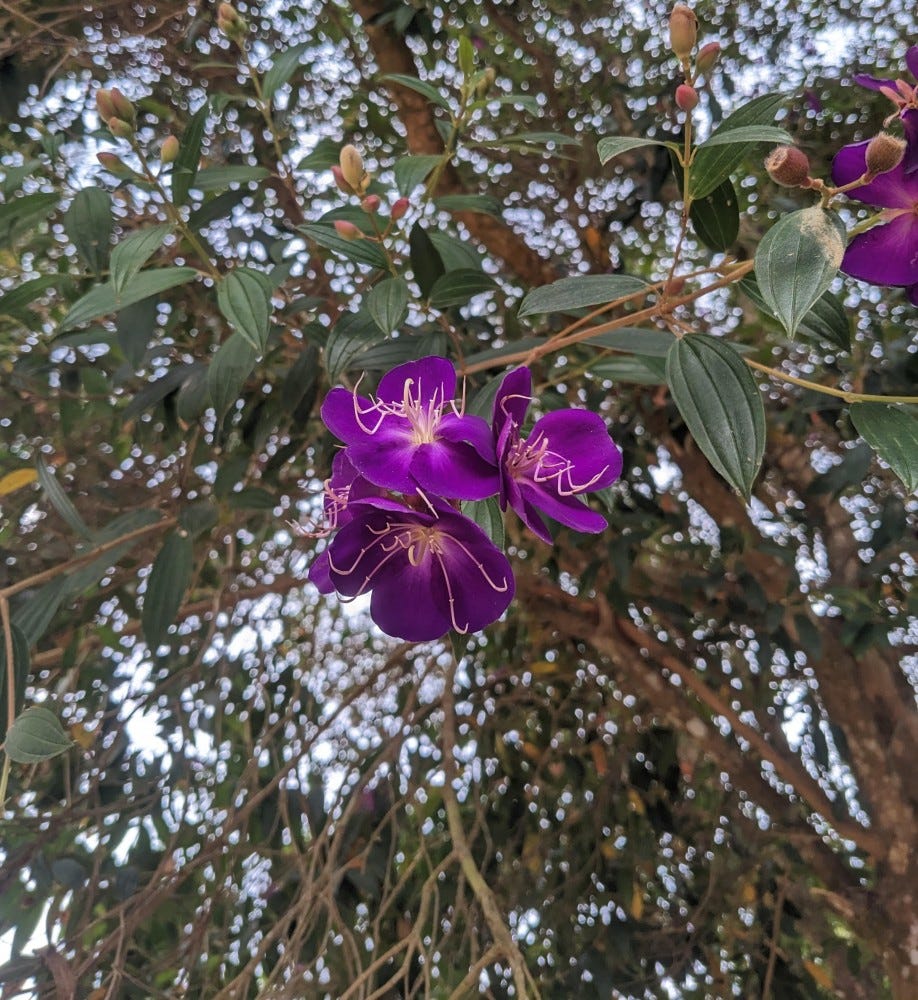
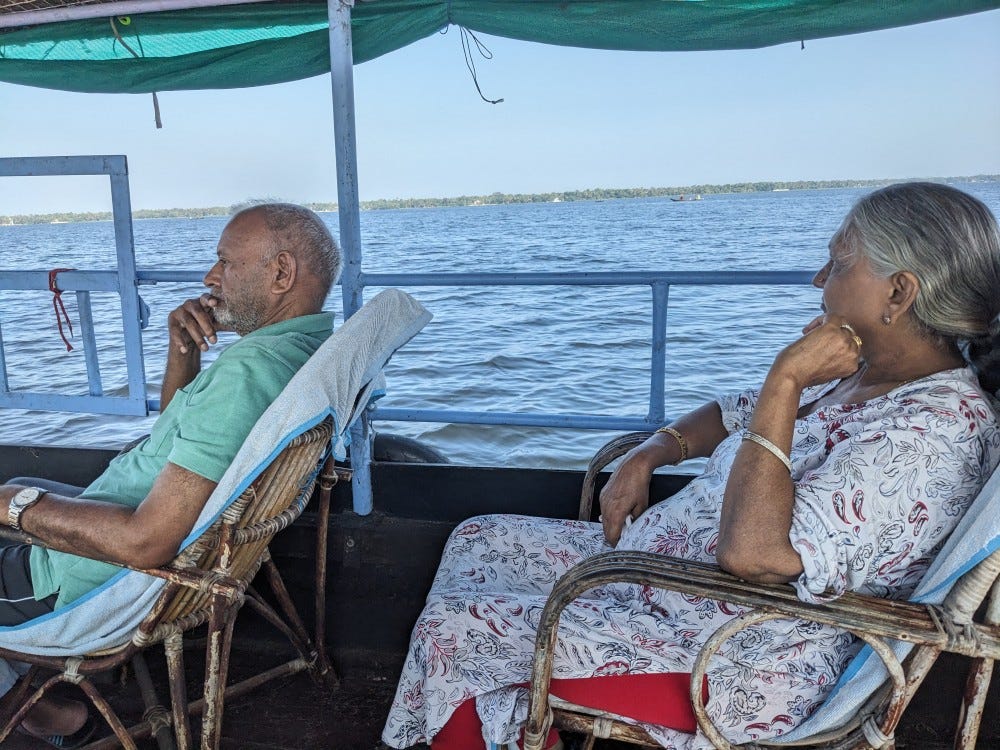
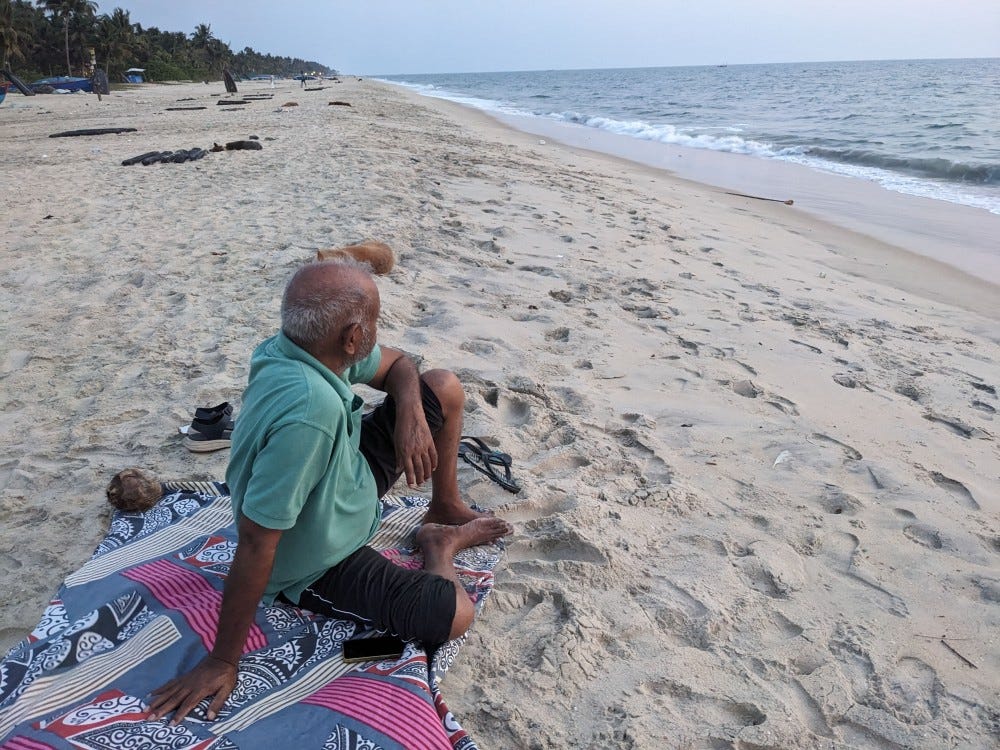
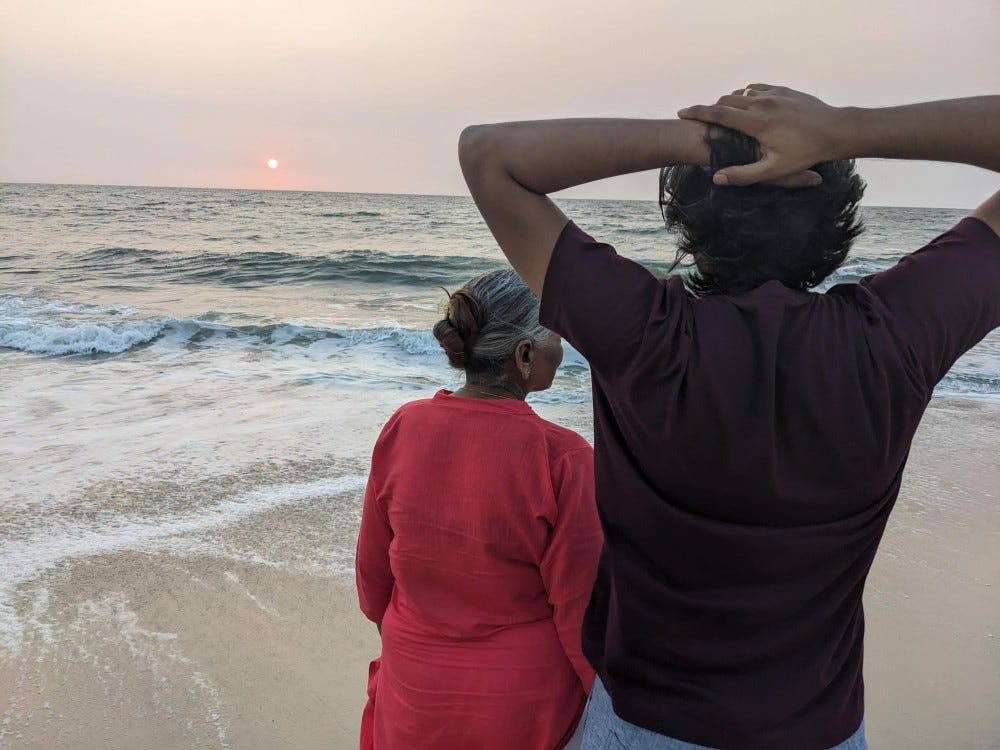
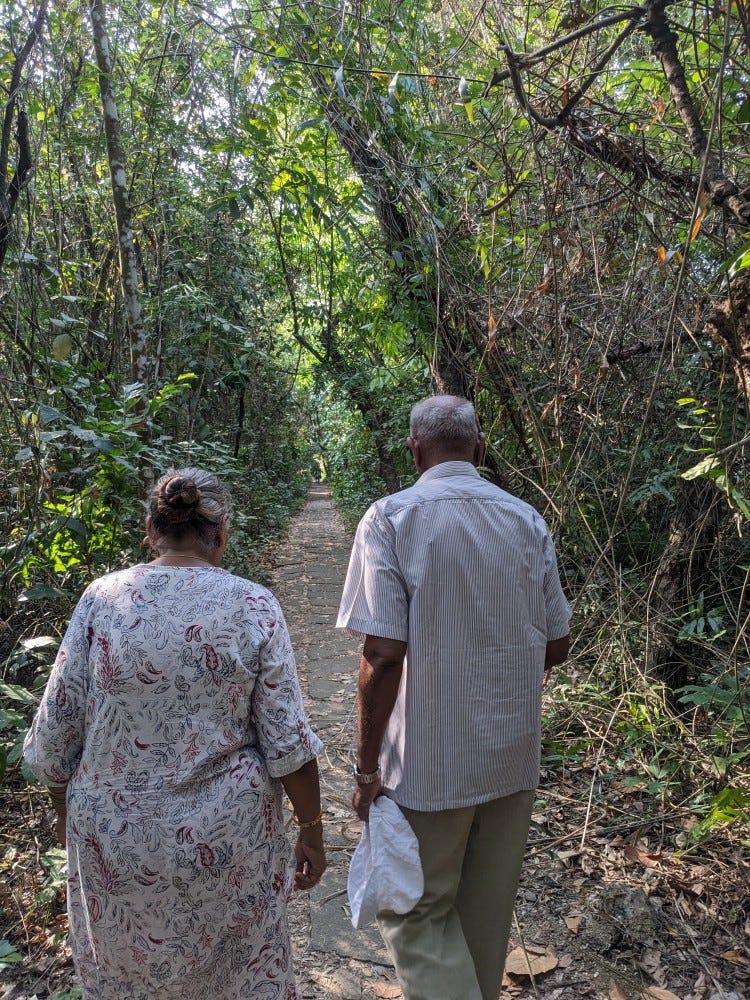
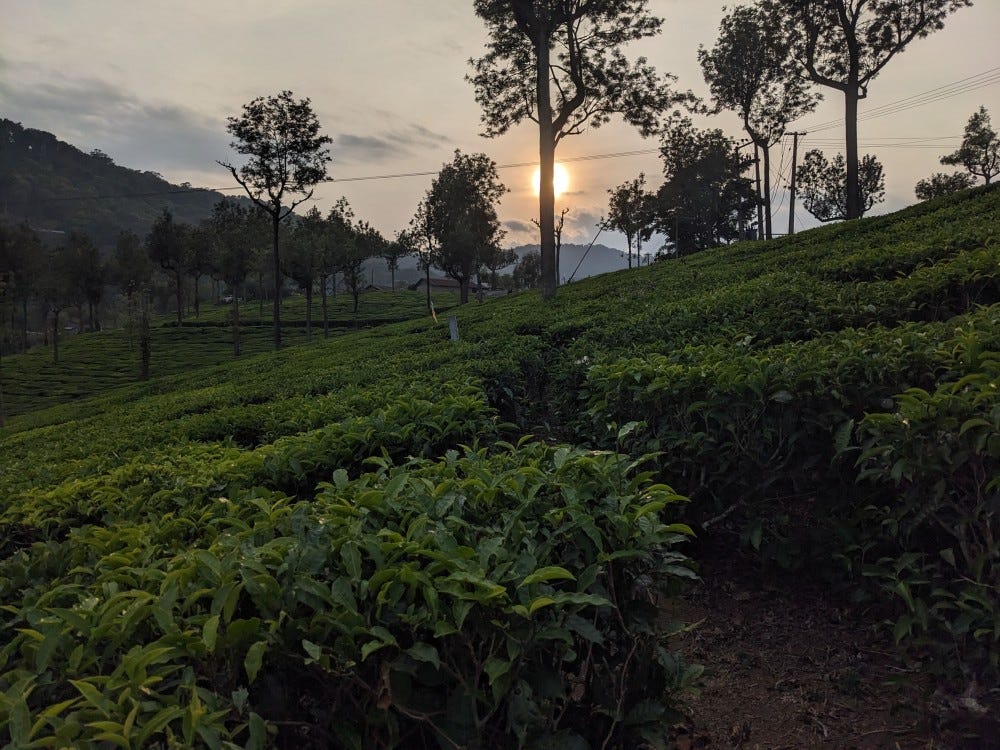
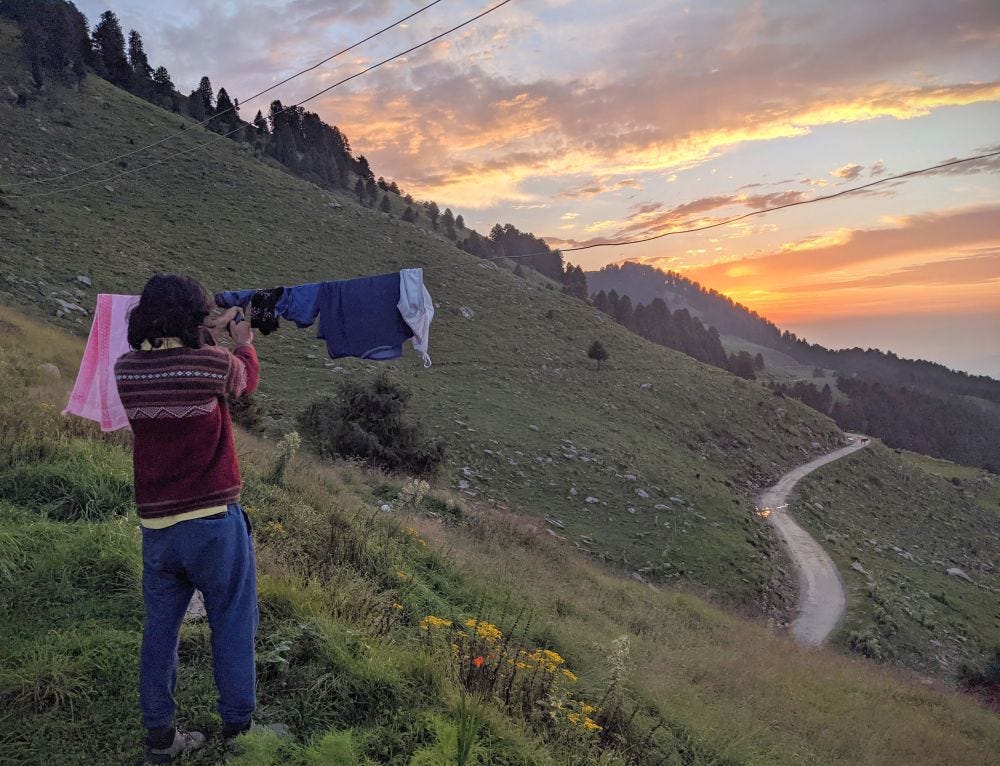
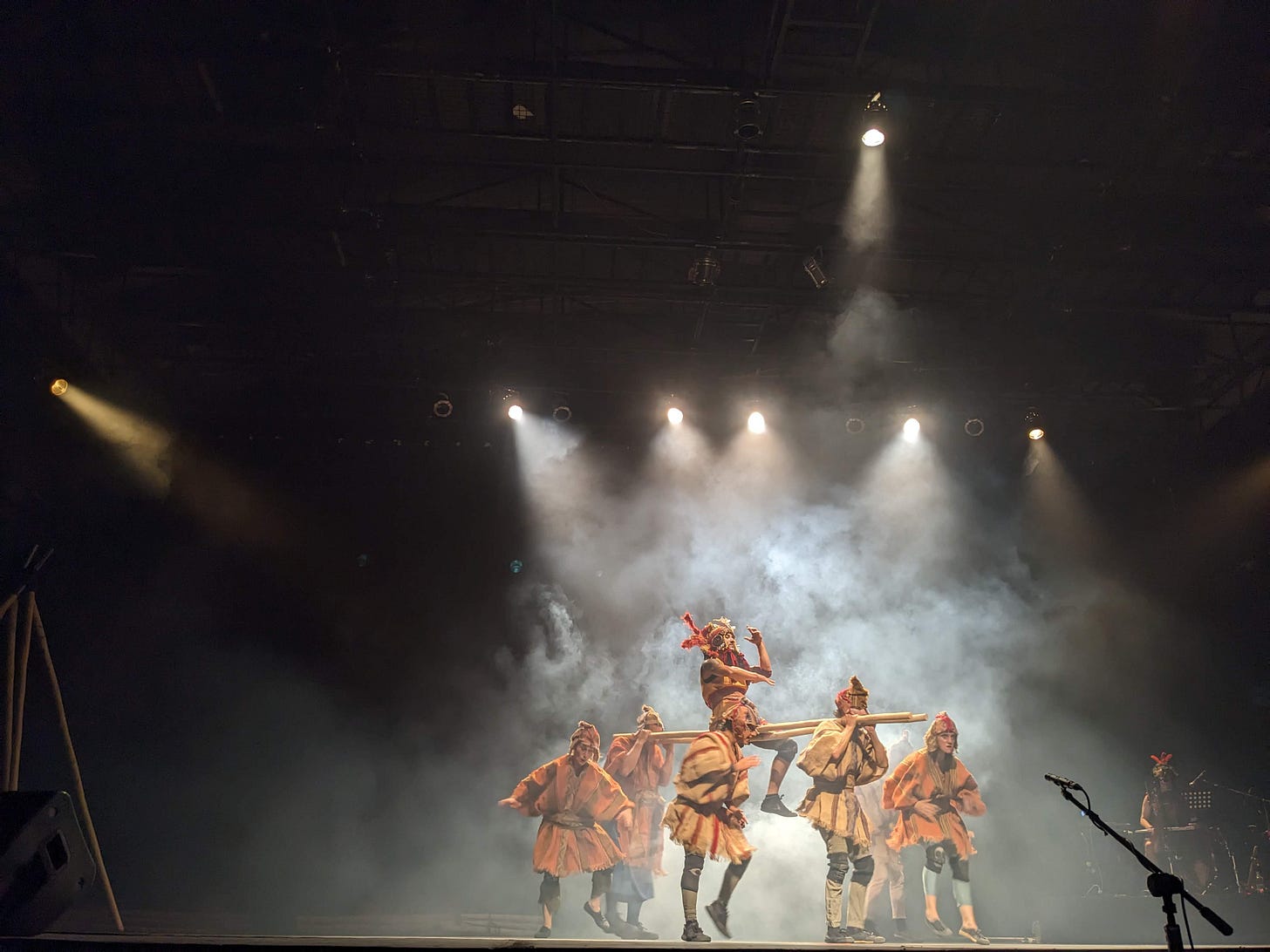
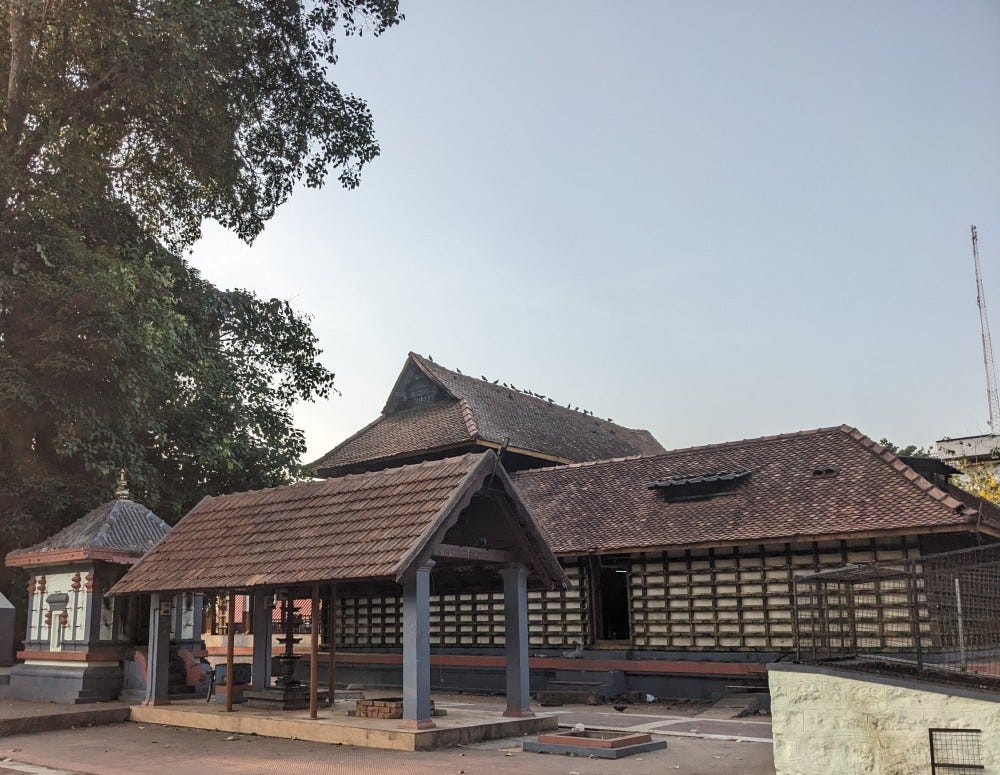
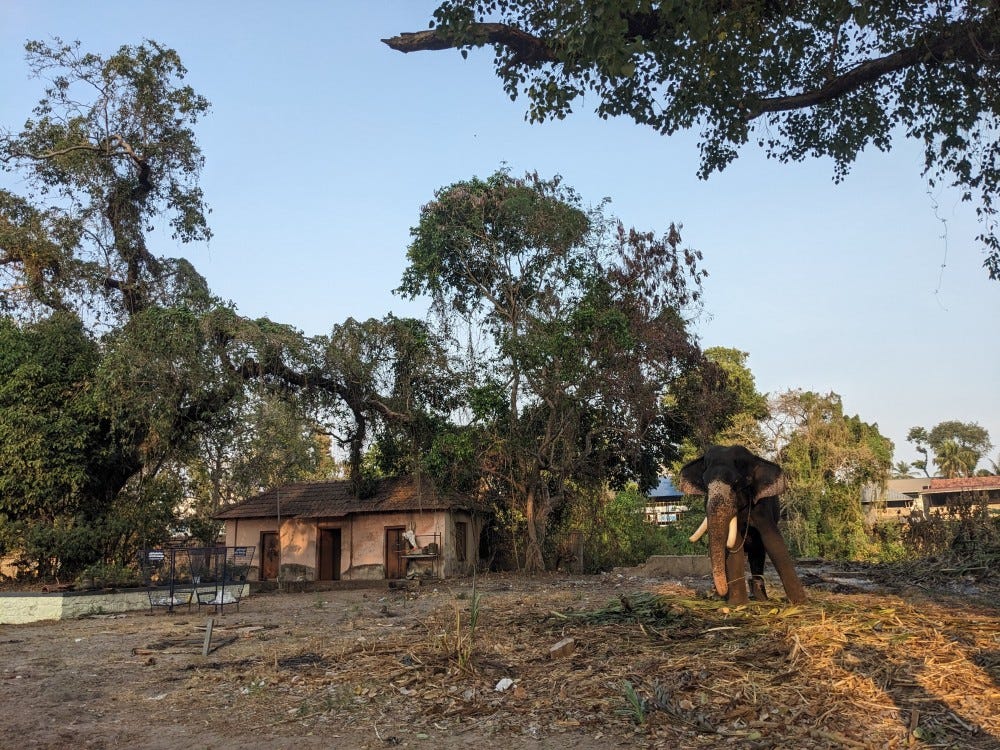
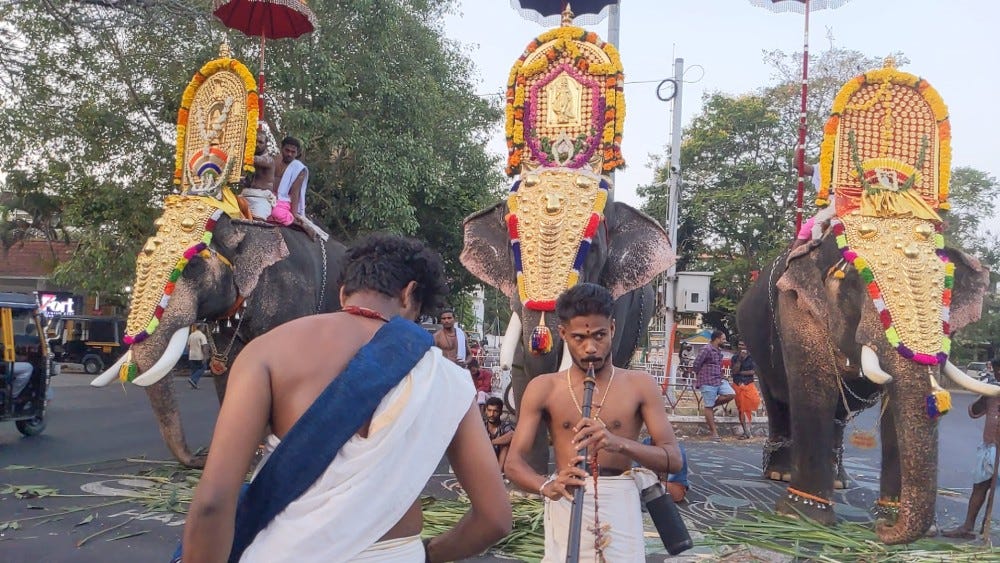
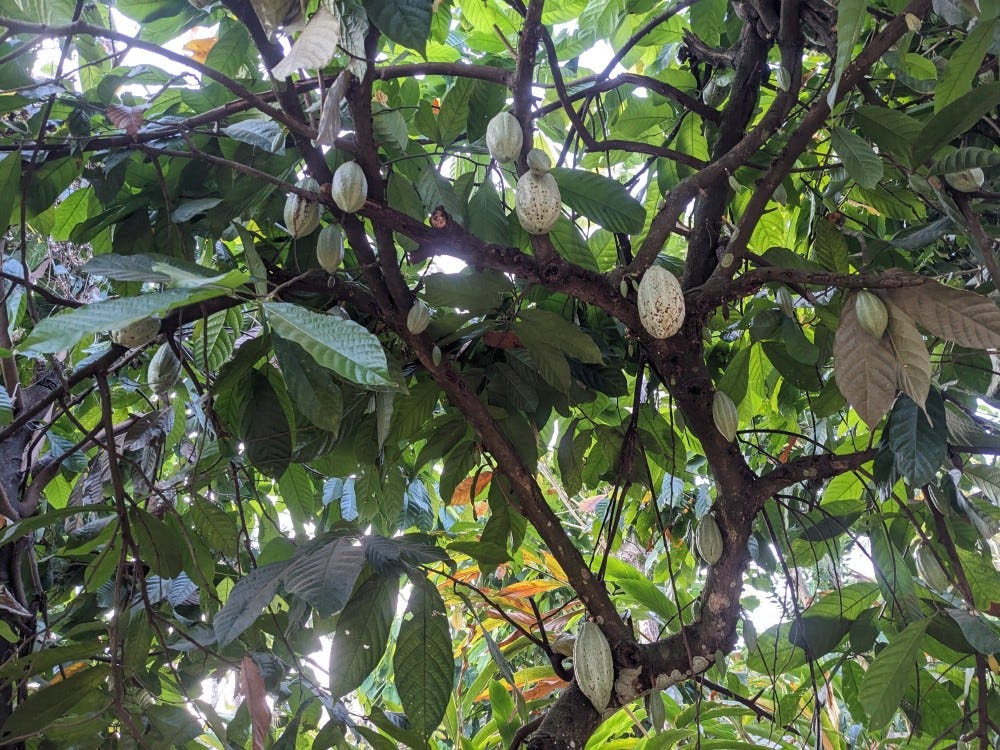
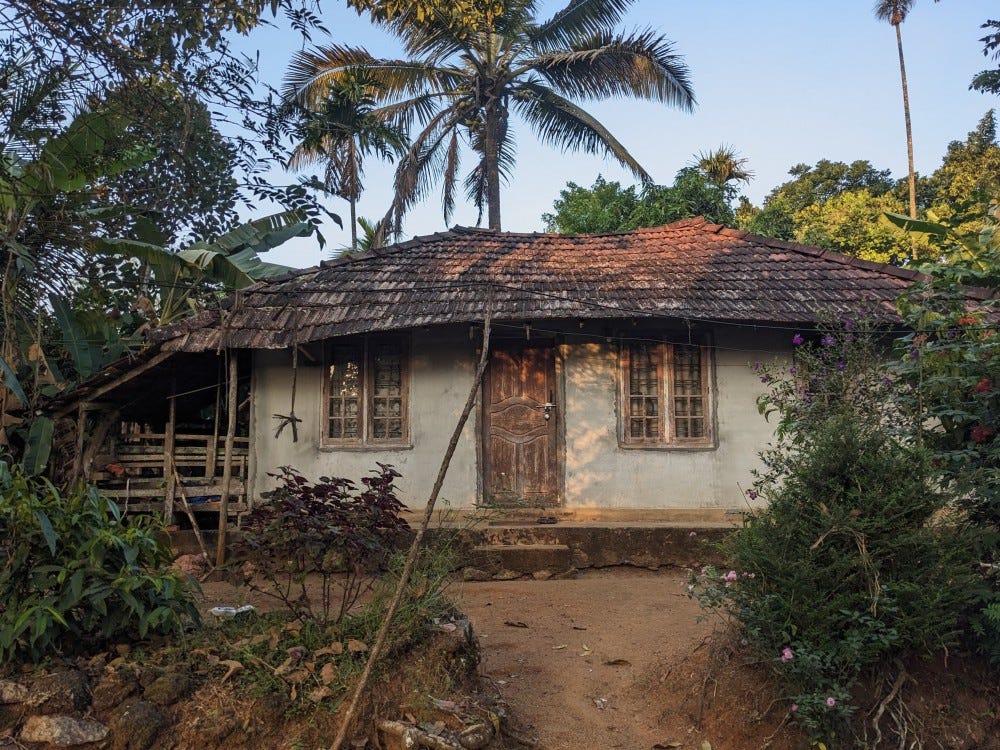
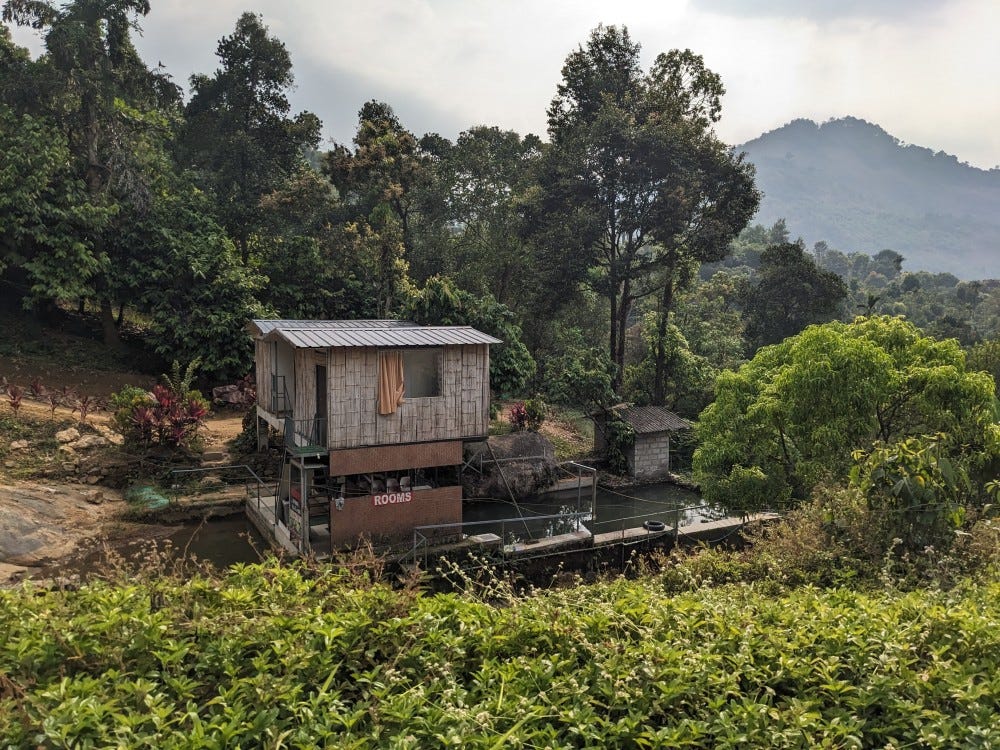
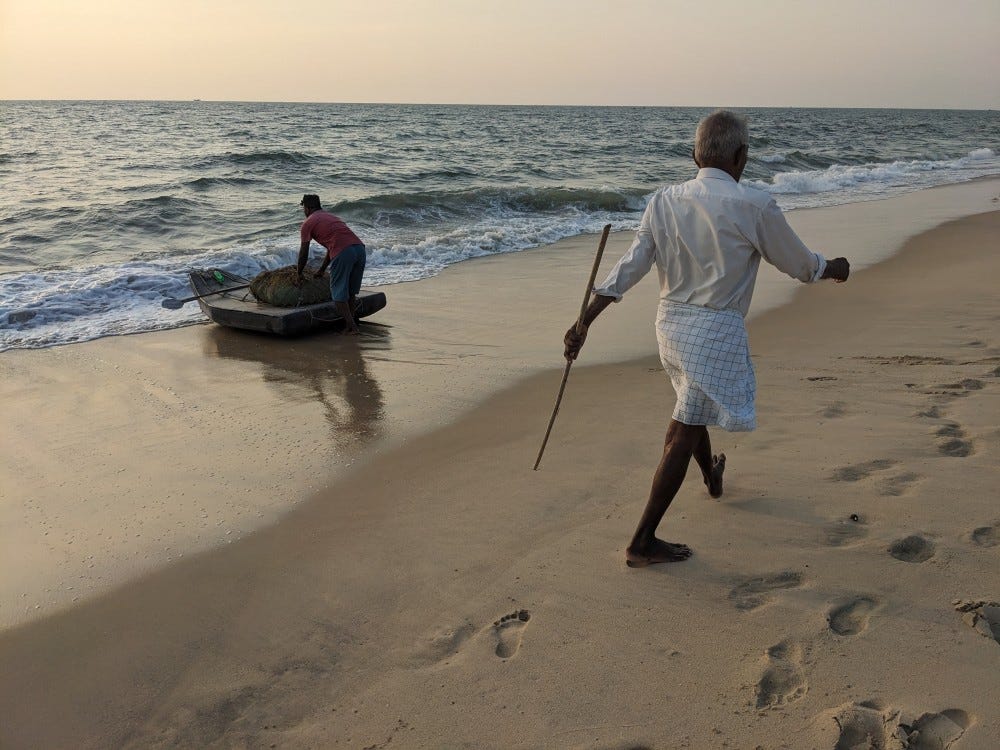
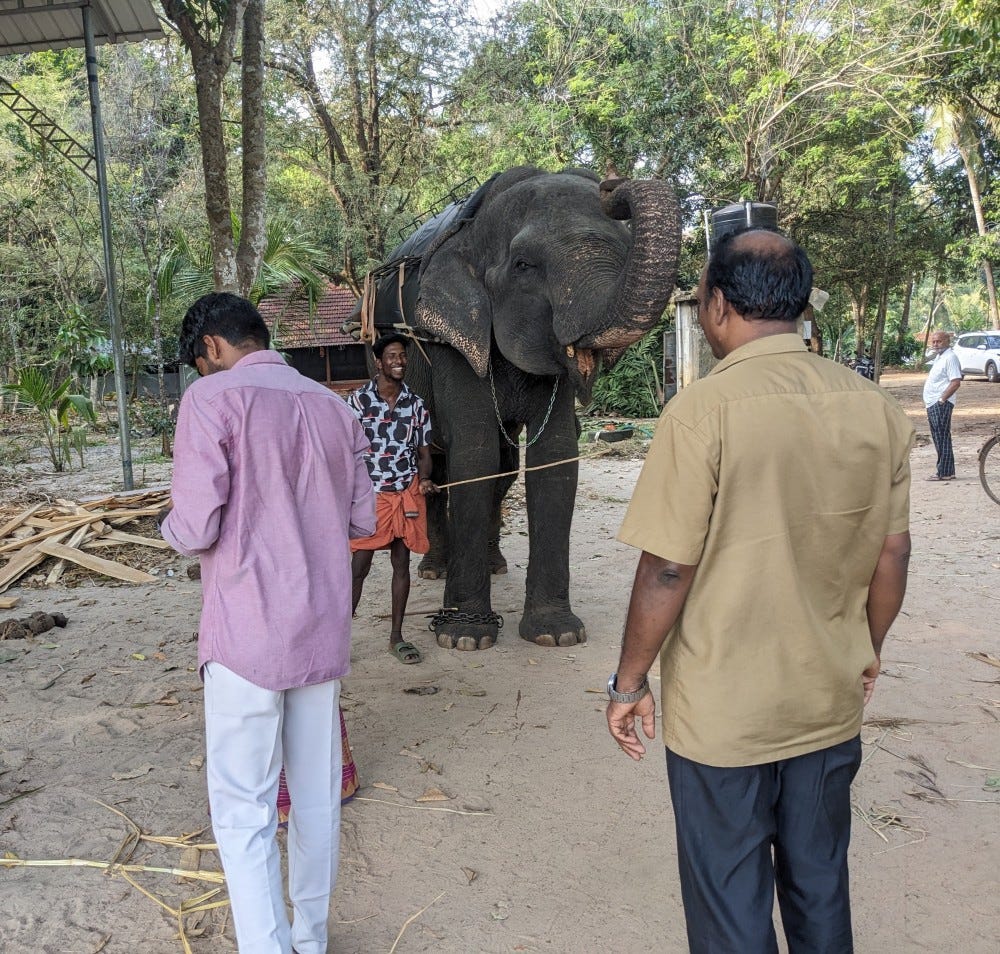
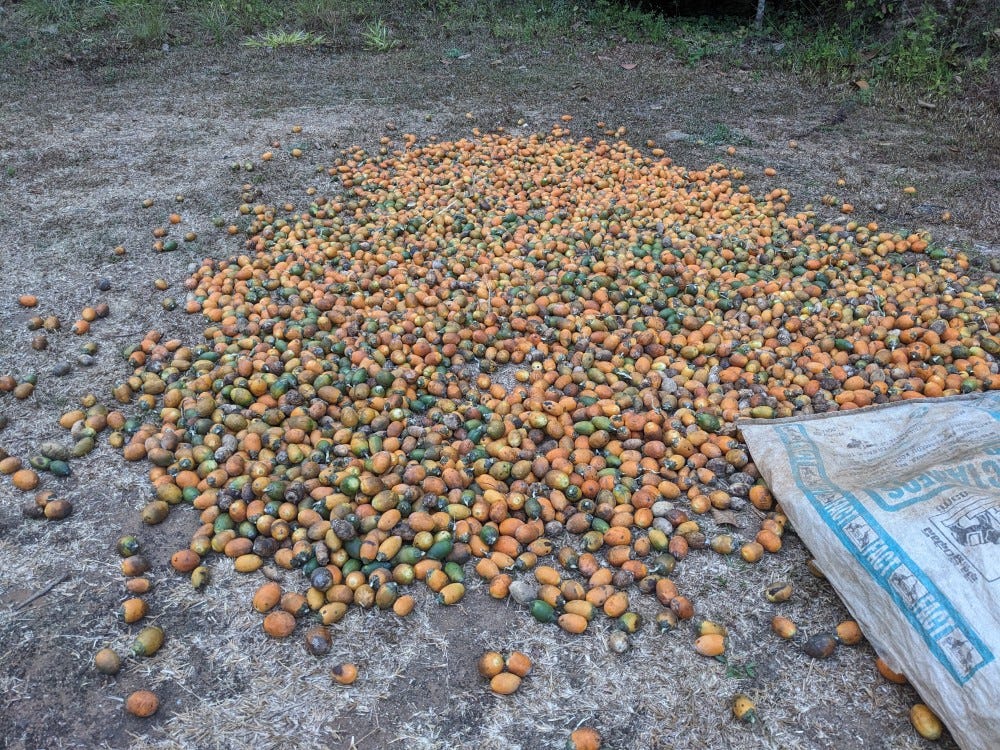
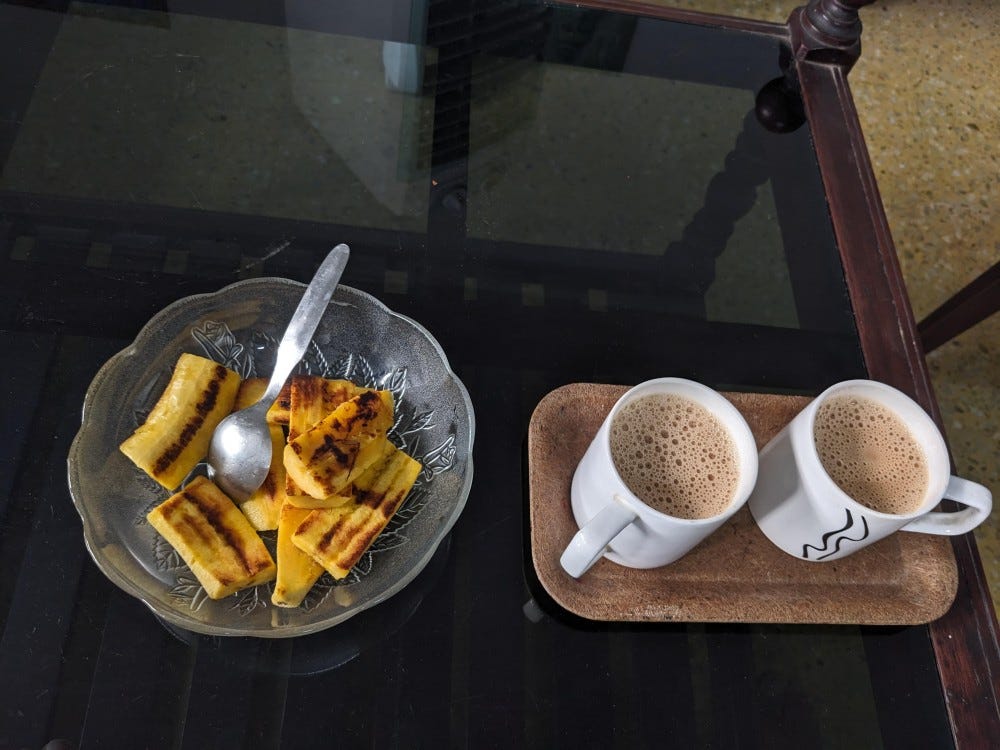
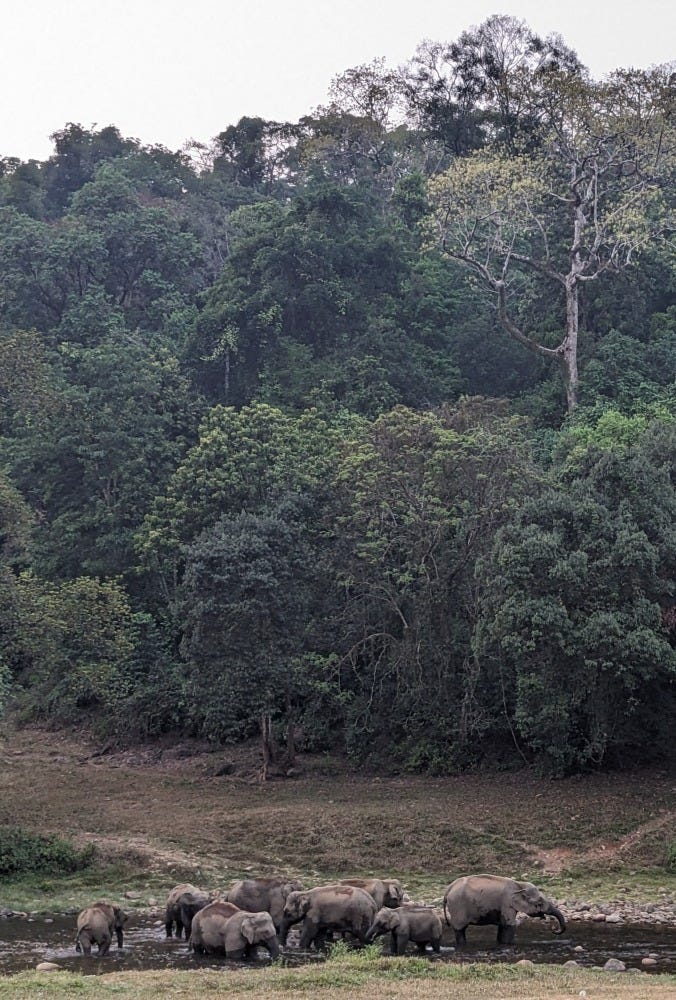
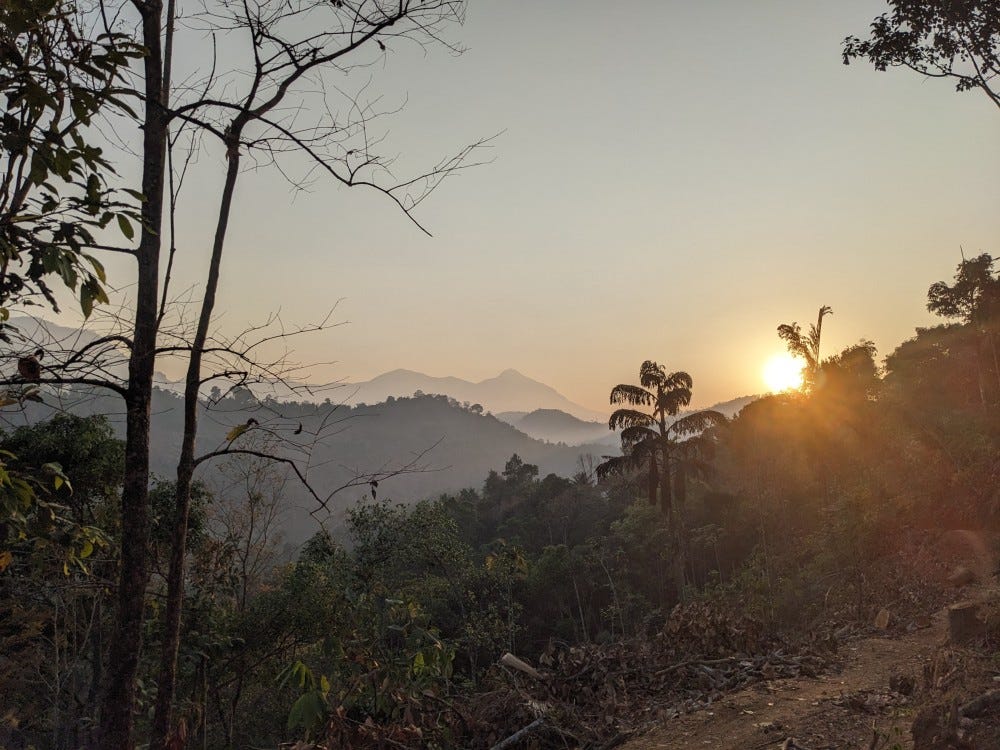
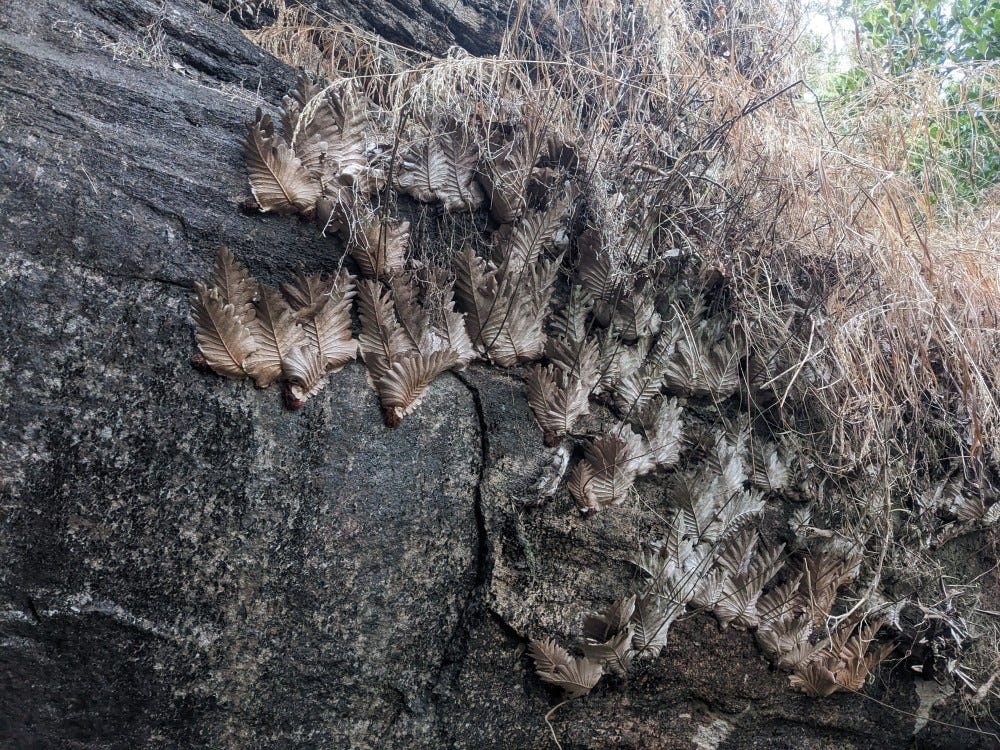
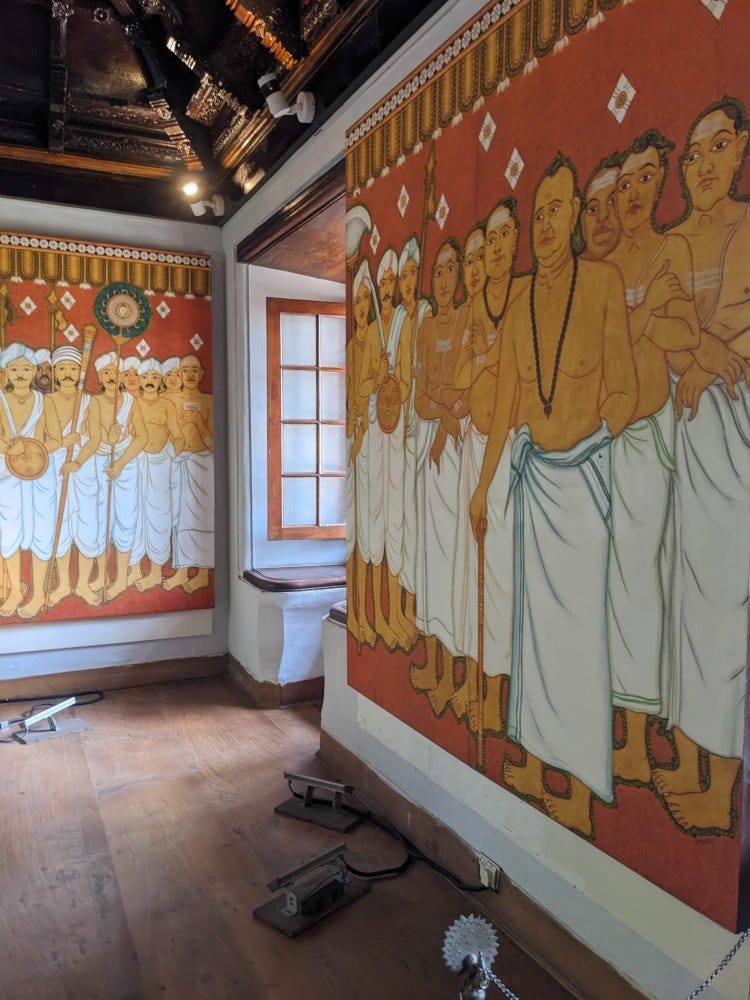
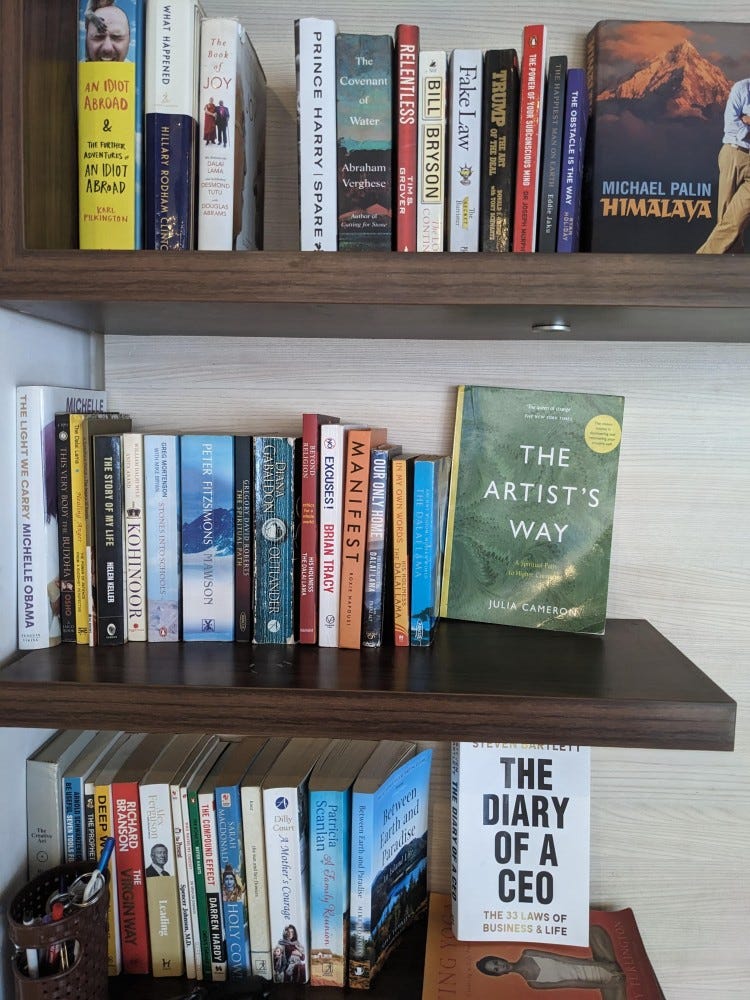
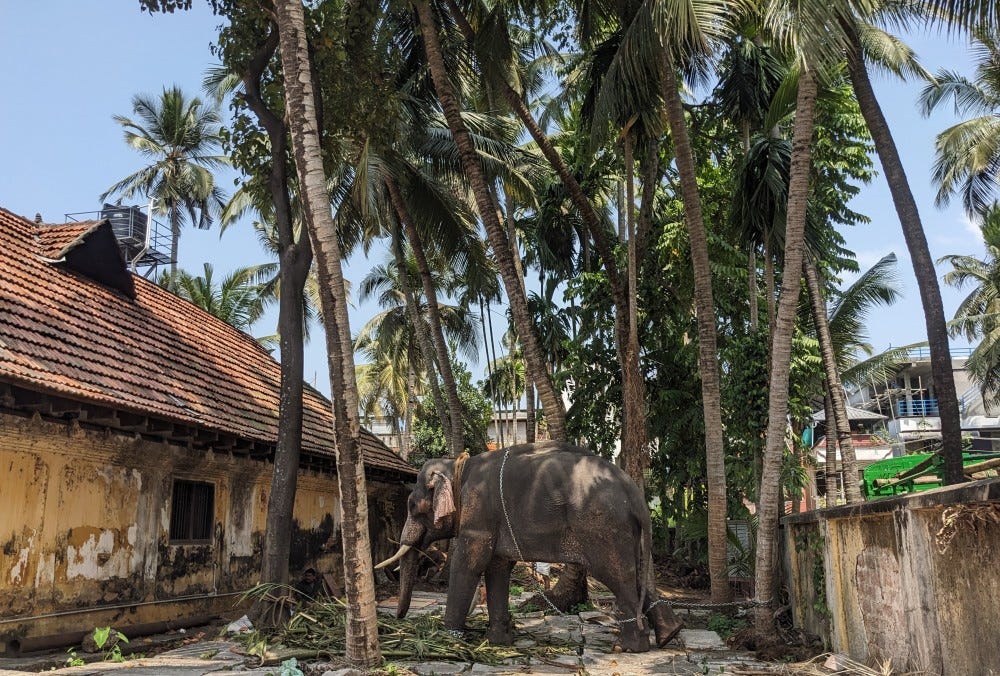
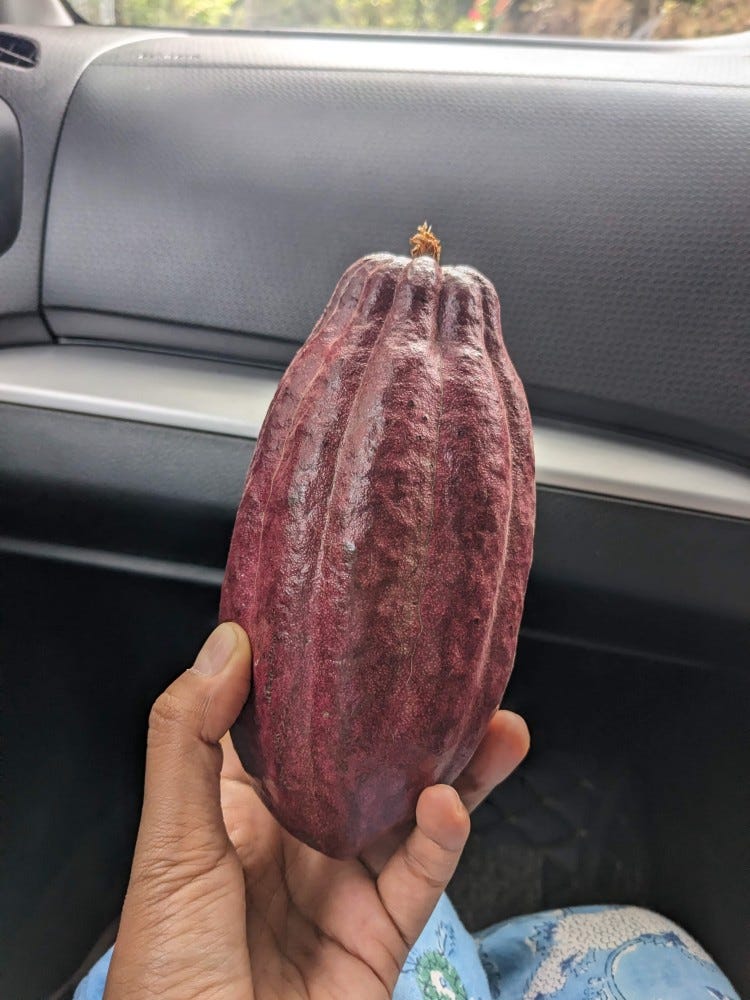
hi, I discovered your blog today and had a pleasant couple hours reading your work :)
i appreciated this piece in particular. my parents have also gotten older and it makes my heart ache.
relatedly, my parents invited me to a trip and i had some excuses in my head to not go, but who knows how much longer they will have the mobility they have. i've resolved to go now.